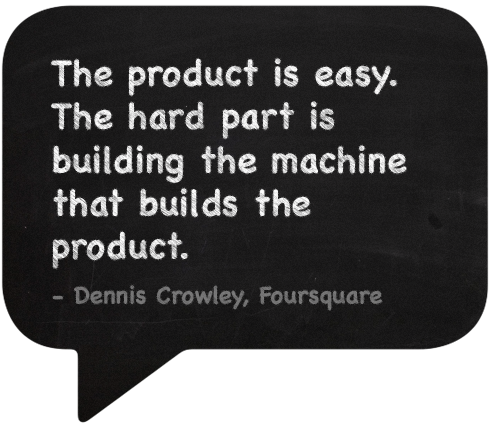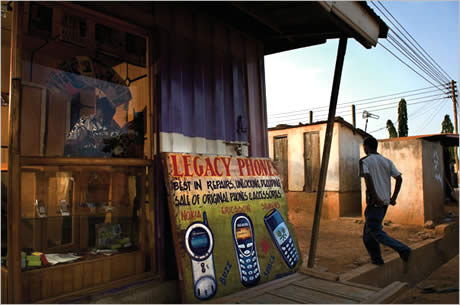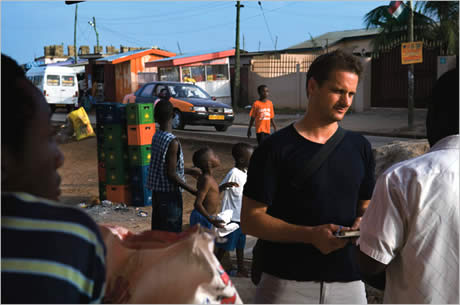Eat with it and then Eat it!
This edible cutlery is a perfect alternative to harmful disposable cutlery, it is not only environmentally safe but also enriched with nutritious ingredients like jowar (sorghum).
Tag: innovation
The Drone Aviary
The Drone Aviary reveals fleeting glimpses of the city from the perspective of drones.
It explores a world where the ‘network’ begins to gain physical autonomy. Drones become protagonists, moving through the city, making decisions about the world and influencing our lives in often opaque yet profound ways.
– by Superflux lab
2013 Tech Trends
Tech Trend predictions for the coming year by frog design.
Building the Machine

The product is easy. The hard part is building the machine that builds the product.
– Dennis Crowley, Foursquare
Can the Cellphone Help End Global Poverty?

A cellphone shop in Accra, Ghana, which carries and repairs a variety of handsets.
A great article via The New York Times featuring Jan Chipchase and his work style to find about how people use their cell phones, where they keep it, understanding their behaviour in terms of usability, business and Psychology many more ways . . even a simple idea can make a product more innovative and solution providing as mobile phones are getting more personalized mere just not a functional device to talk. The premise of the work is simple – get to know your potential customers as well as possible before you make a product for them.
“This sort of on-the-ground intelligence-gathering is central to what’s known as “human-centered design”, a business-world niche that has become especially important to ultracompetitive high-tech companies trying to figure out how to write software, design laptops or build cellphones that people find useful and unintimidating and will thus spend money on. Several companies, including Intel, Motorola and Microsoft, employ trained anthropologists to study potential customers.”

Chipchase talks to Accra street vendors about what an ideal phone.
Jan Chipchase is 38, a rangy native of Britain whose broad forehead and high-slung brows combine to give him the air of someone who is quick to be amazed, which in his line of work is something of an asset. For the last seven years, he has worked for the Finnish cellphone company Nokia as a “human-behavior researcher.†He’s also sometimes referred to as a “user anthropologist.†To an outsider, the job can seem decidedly oblique. His mission, broadly defined, is to peer into the lives of other people, accumulating as much knowledge as possible about human behavior so that he can feed helpful bits of information back to the company — to the squads of designers and technologists and marketing people who may never have set foot in a Vietnamese barbershop but who would appreciate it greatly if that barber someday were to buy a Nokia.
I really impressed with him, his thoughts to create innovation and more focussed for the people.
vivek